第71章 LETTER LII(2)
Pray let no quibbles of lawyers,no refinements of casuists,break into the plain notions of right and wrong,which every man's right reason and plain common sense suggest to him.To do as you would be done by,is the plain,sure,and undisputed rule of morality and justice.Stick to that;and be convinced that whatever breaks into it,in any degree,however speciously it may be turned,and however puzzling it may be to answer it,is,notwithstanding,false in itself,unjust,and criminal.I do not know a crime in the world,which is not by the casuists among the Jesuits (especially the twenty-four collected,I think,by Escobar)allowed,in some,or many cases,not to be criminal.The principles first laid down by them are often specious,the reasonings plausible,but the conclusion always a lie:for it is contrary,to that evident and undeniable rule of justice which I have mentioned above,of not doing to anyone what you would not have him do to you.But,however,these refined pieces of casuistry and sophistry,being very convenient and welcome to people's passions and appetites,they gladly accept the indulgence,without desiring to detect the fallacy or the reasoning:and indeed many,I might say most people,are not able to do it;which makes the publication of such quibblings and refinements the more pernicious.I am no skillful casuist nor subtle disputant;and yet I would undertake to justify and qualify the profession of a highwayman,step by step,and so plausibly,as to make many ignorant people embrace the profession,as an innocent,if not even a laudable one;and puzzle people of some degree of knowledge,to answer me point by point.I have seen a book,entitled 'Quidlibet ex Quolibet',or the art of making anything out of anything;which is not so difficult as it would seem,if once one quits certain plain truths,obvious in gross to every understanding,in order to run after the ingenious refinements of warm imaginations and speculative reasonings.Doctor Berkeley,Bishop of Cloyne,a very worthy,ingenious,and learned man,has written a book,to prove that there is no such thing as matter,and that nothing exists but in idea:that you and I only fancy ourselves eating,drinking,and sleeping;you at Leipsig,and I at London:that we think we have flesh and blood,legs,arms,etc.,but that we are only spirit.His arguments are,strictly speaking,unanswerable;but yet I am so far from being convinced by them,that I am determined to go on to eat and drink,and walk and ride,in order to keep that MATTER,which I so mistakenly imagine my body at present to consist of,in as good plight as possible.Common sense (which,in truth,very uncommon)is the best sense I know of:abide by it,it will counsel you best.Read and hear,for your amusement,ingenious systems,nice questions subtilly agitated,with all the refinements that warm imaginations suggest;but consider them only as exercitations for the mind,and turn always to settle with common sense.
I stumbled,the other day,at a bookseller's,upon "Comte Gabalis,"in two very little volumes,which I had formerly read.I read it over again,and with fresh astonishment.Most of the extravagances are taken from the Jewish Rabbins,who broached those wild notions,and delivered them in the unintelligible jargon which the Caballists and Rosicrucians deal in to this day.Their number is,I believe,much lessened,but there are still some;and I myself have known two;who studied and firmly believed in that mystical nonsense.What extravagancy is not man capable of entertaining,when once his shackled reason is led in triumph by fancy and prejudice!The ancient alchemists give very much into this stuff,by which they thought they should discover the philosopher's stone;and some of the most celebrated empirics employed it in the pursuit of the universal medicine.Paracelsus,a bold empiric and wild Caballist,asserted that he had discovered it,and called it his 'Alkahest'.
Why or wherefore,God knows;only that those madmen call nothing by an intelligible name.You may easily get this book from The Hague:read it,for it will both divert and astonish you,and at the same time teach you 'nil admirari';a very necessary lesson.